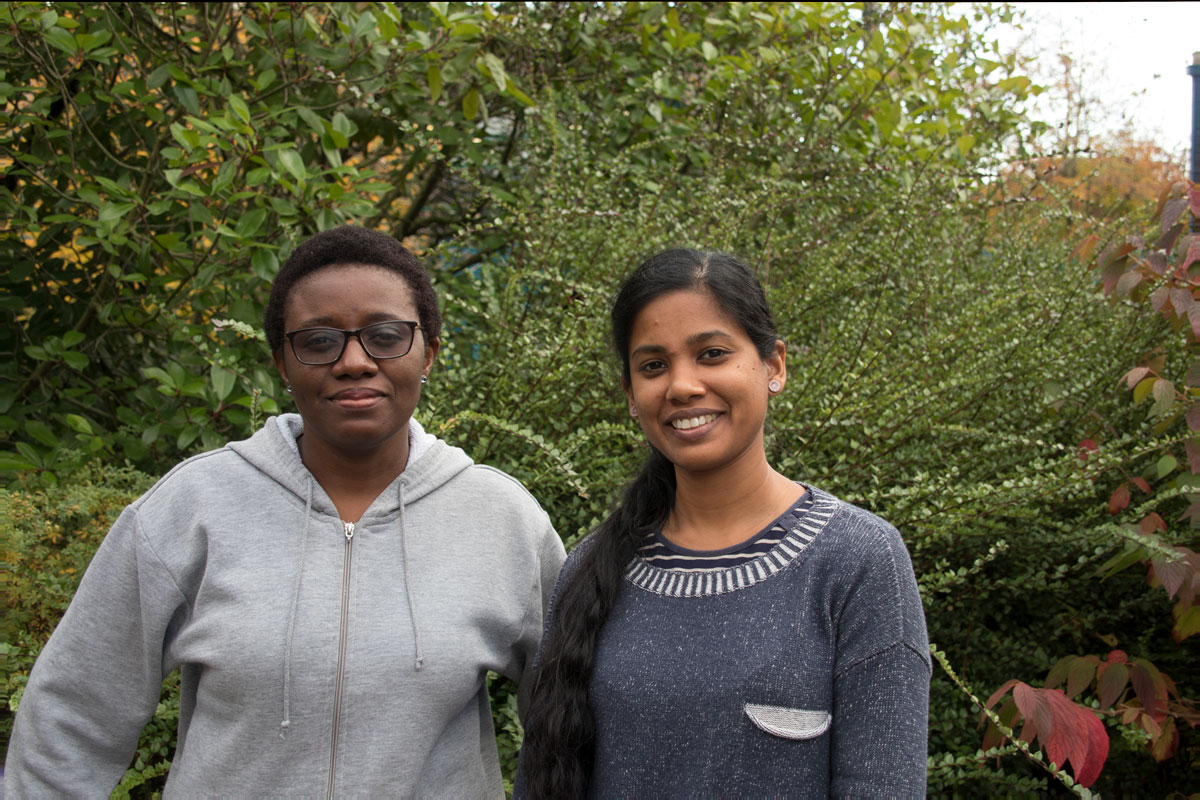
October 24, 2019, by jicke
Commonwealth scholars welcomed to University
The School of Biosciences and the Future Food Beacon are welcoming two Commonwealth scholars to undertake 12 month research studentships.
Mirriam Makungwe from Zambia and Naailah Alifrom Trinidad have been awarded the Commonwealth split-site Scholarships to develop their food sustainabilty research projects with the School of Biosciences and Future Food Beacon of Excellence.
These scholarships are awarded to PhD candidates from low and middle income Commonwealth countries, to spend up to 12 months at a UK university as part of their doctoral studies in their home country. Funded by the UK Department for International Development (DFID), Commonwealth Split-site Scholarships enable talented and motivated individuals to gain the knowledge and skills required for sustainable development, and are aimed at those who could not otherwise afford to study in the UK.
Mirriam Makungwe’s PhD at the University of Zambia is using various sources of legacy data to map land suitability for upland rice production in parts of eastern Zambia. Mirriam is interested in comparing alternative methods for spatial prediction of soil properties, and to examine how the uncertainties in these predictions can be effectively communicated to decision-makers. At UoN, Mirriam will be working with Prof Murray Lark.
Mirriam said: “I’m delighted to be taking up the scholarship as it will enable me to work with other scientists whose interests relate to my current and future research. In particular the University of Nottingham has an international reputation for research in spatial sampling design, advanced spatial statistical modelling and the communication of uncertain information to stakeholders. This is done alongside research on crop and human nutrition at national scale in Africa. Working at Nottingham will help me to develop technical skills directly related to my current project and will also broaden my experience of interdisciplinary research involving soil information.”
Naailah is at the University of the West Indies (UWI) and will be undertaking a project with Prof David Salt and the Cocoa ResearchCentre(CRC). Naailah will learn to use DNA sequencing approaches to measure the microbes that are fermenting the cocoa beans of selected smallholder cocoa farmers in the Caribbean and to use analytical methods to identify and measure metabolites present in these cocoa fermentations. This research is working towards finding new ways to improve the quality of the premium chocolate made from these cocoa beans.
Naailah though currently pursuing a PhD, has worked as a researcher at CRC, The UWI for almost thirteen years conducting research and outreach activities in postharvest processing and value addition, she said: “The movement of many Caribbean families out of agricultural jobs coupled with aging farmers, lack of access to technology, rise in crime rates, climate change, reduced food security and increase in refugees due to various reasons has changed life in the Caribbean region. This has pushed me to work towards finding solutions to some of these problems, improving agriculture and hopefully attracting young persons to this sector.I think my time at University of Nottingham, where a wealth of expertise resides, will assist me in completing the research necessary to make a tangible contribution to my region and I am immensely grateful for this opportunity”.
David Salt, Director of the Future Food Beacon of Excellence said: “We’re delighted to be welcoming Mirriam and Naailah to the University of Nottingham. Their research supports the work of the Future Food Beacon to help deliver sustainable solutions to global food challenges. We also hope that the support and learning they gain from undertaking these projects will help further their academic careers.”
No comments yet, fill out a comment to be the first

Leave a Reply